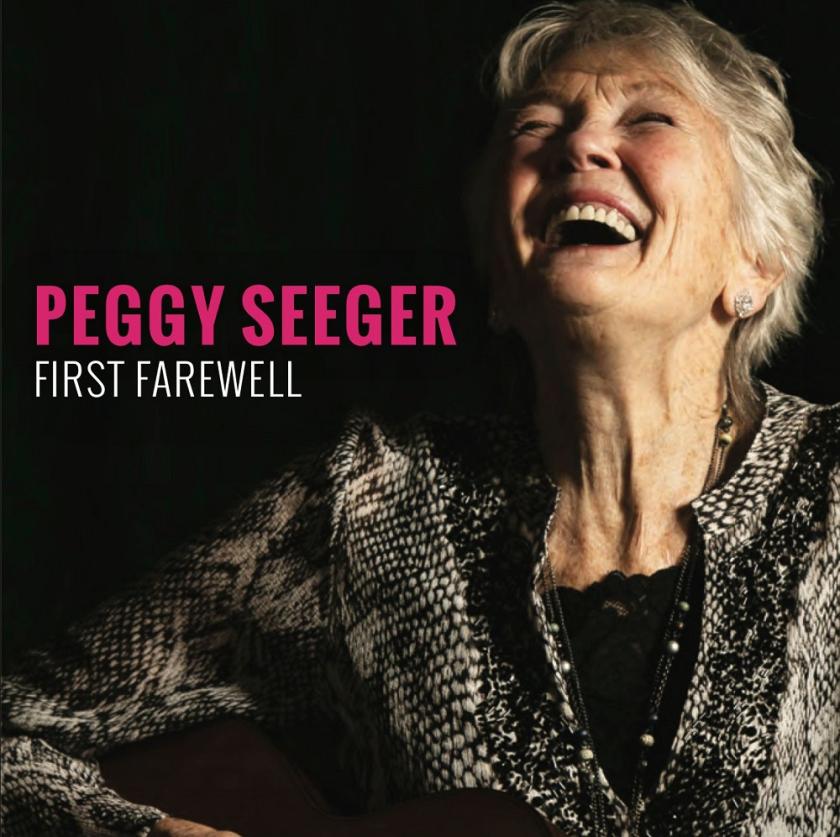At 85, Peggy Seeger has lived in Britain for most of her life, arriving in 1956 as a Radcliffe dropout at the invitation of folklorist Alan Lomax, who had plans for a British equivalent of the Weavers. That didn’t work out, but the visit brought her together with Ewan MacColl, folk singer, song collector, actor and left-wing firebrand. They wouldn’t marry for years, but they were soon singing together and living together, criss-crossing the country, kids in tow, playing clubs, collecting songs from communities of fishermen, miners, navvies and gypsies, and preserving a history that would soon be obscured by the “white heat” of the 1960s. The Radio Ballads, commissioned by the BBC, were the most celebrated result of a legacy that included scores of albums.
MacColl (father of Kirsty) died in 1989 but Peggy – about whom he wrote "The First Time Ever I Saw Your Face" – has powered on, writing, recording, travelling. She returned to the States for 16 years, exploring a country she hardly knew, but for the past decade she’s made her home in Oxfordshire, her musician sons Neill and Calum and their families in close proximity. This, she thinks, will be her final album – but the title, First Farewell suggests there may be more to come.
There’s always been a sense that – strong as she was – Seeger, the proto-feminist who wrote “I’m Gonna Be An Engineer” back in 1971, needed to emerge from MacColl’s shadow. Two-thirds of her solo catalogue post-dates MacColl and listening to her latest outing you don’t get the sense she’s truly ready to leave the stage.
For First Farewell, recorded with her sons and daughter-in-law Kate St John, is hardly the sound of an octogenarian. Arthritis has made banjo and guitar more difficult so Seeger plays piano, a move which of course gives the album a quite different flavour. She was taught by her mother, modernist composer Ruth Crawford Seeger, which means she creates some interesting chord progressions, surprising resolutions and textures – the feeling is often more art song than folk song, Seeger’s voice to the fore. The opening number “Dandelion and Clover” sets the tone, St John’s cor anglais adding a counterpoint to the vocal. “One of Those Beautiful Boys” is a perfect miniature, piano and oboe parts carefully wrought, the tonality arrested mid-flight as the song disappears into the ether.
Seeger is by turns wistful, occasionally sentimental, poignant, and acerbic – “The Invisible Woman”, co-written with Neill, is a neat commentary on the older woman’s lot. Calum shares the credits on two songs: “We Are Here”, a half-spoken lament about the distractions of modern life, and “All in the Mind” about the loss of identity that comes with dementia. “Lullabyes for Children”, on which she collaborated with St John, sounds almost like a chanson, the musings of a stranger in a strange land, looking after someone else’s children and missing her own. “How I Long for Peace” is hymnlike and beautifully simple, tonic/dominant chords supporting the vocal. You feel it should close the album, but Seeger punctures the atmosphere of reverence with a light-hearted look at the hassles of old age, “Gotta Get Home By Midnight”.
“Be relevant” is the advice Seeger gives to young songwriters – and she herself remains as relevant as ever. Pete Seeger, another member of the clan, wrote and played almost until his death, aged 94. It would be surprising if his half-sister didn’t do likewise.















Add comment